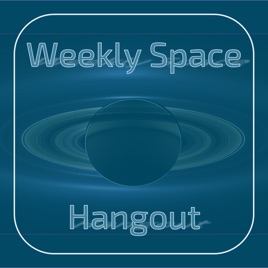
Advertise on podcast: Weekly Space Hangout
Rating
5 from
Country
This podcast has
63 episodes
Language
Publisher
Explicit
No
Date created
2021/01/09
Average duration
58 min.
Release period
8 days
Description
The Weekly Space Hangout with Fraser Cain and our team of Journalists brings you the latest in space news as well as interviews with special guests from the space and science community. This podcast is funded through Patreon.com/CosmoQuestX and produced out of the Planetary Science Institute.
Podcast episodes
Check latest episodes from Weekly Space Hangout podcast
Former NASA Deputy Administrator Lori Garver and Her New Memoir "Escaping Gravity"
2022/06/25
This week we are honored to welcome former NASA Deputy Administrator Lori Garver to the Weekly Space Hangout. Her new memoir, Escaping Gravity (Diversion Books, June 21, 2022), offers a "first-hand account of how a handful of revolutionaries managed to outmaneuver the system of political patronage and bureaucracy that threatened the space agency and the future of human spaceflight. From inside NASA, Garver drove changes to policies and programs that enabled competition that challenged the expensive and ineffective traditional systems at the exact time the capabilities and resources of the private sector began to mature."
Lori Garver led the NASA transition team for President-elect Obama and served as Deputy Administrator of NASA from 2009 - 2013. Lori is a Senior Fellow at Harvard Kennedy School’s Belfer Center for Science and International Affairs, an Executive in Residence at Bessemer Venture Partners, and a member of the Board of Directors for Hydrosat.
Garver founded Earthrise Alliance, a philanthropic organization utilizing satellite data to address climate change, and co-founded the Brooke Owens Fellowship, an internship and mentorship program for collegiate women. Previous senior executive positions include former General Manager of the Air Line Pilots Association, Vice President of the Avascent Group, Associate Administrator for Policy at NASA, and Executive Director of the National Space Society. Garver is the recipient of the 2021 Public Service Award for AIAA, the 2021 Heinlein Award for the National Space Society, the 2020 Lifetime Achievement Award for Women in Aerospace, and has been awarded three NASA Distinguished Service Medals.
Lori holds a B.A. in Political Economy from Colorado College and an M.A. in Science, Technology, and Public Policy from George Washington University.
Be sure to visit the Escaping Gravity website to learn more about the book, including how to order your own copy.
You can also learn more about Lori by visiting her website as well as her NASA webpage.
Follow Lori on Twitter, Facebook, and LinkedIn.
****************************************
The Weekly Space Hangout is a production of CosmoQuest. Want to support CosmoQuest? Here are some specific ways you can help:
Subscribe FREE to our YouTube channel at https://www.youtube.com/c/cosmoquest Subscribe to our podcasts Astronomy Cast and Daily Space where ever you get your podcasts! Watch our streams over on Twitch at https://www.twitch.tv/cosmoquestx – follow and subscribe! Become a Patreon of CosmoQuest https://www.patreon.com/cosmoquestx Become a Patreon of Astronomy Cast https://www.patreon.com/astronomycast Buy stuff from our Redbubble https://www.redbubble.com/people/cosmoquestx Join our Discord server for CosmoQuest - https://discord.gg/X8rw4vv Join the Weekly Space Hangout Crew! - http://www.wshcrew.space/ Don't forget to like and subscribe! Plus we love being shared out to new people, so tweet, comment, review us... all the free things you can do to help bring science into people's lives.
more
Weekly Space Hangout — June 15, 2022: CREW HaT: An Answer to Radiation Shielding? with NIAC 2022 Awardee Dr. Elena D’Onghia
2022/06/17
As humanity dreams of exploring destinations both within our own solar system as well as those far beyond, the greatest challenge to be overcome is how to provide effective protection against the inevitable, prolonged exposure to lethal levels of radiation. We all know that Earth's strong magnetic field continually protects us. But can a sufficiently strong magnetic field be generated aboard a spacecraft? 2022 NIAC winner Dr. Elena D'Onghia joins us tonight to discuss a new concept that may just be the solution we need!
Elena is an associate professor at the University of Wisconsin–Madison's Department of Astronomy, and the principal investigator for this innovative concept called CREW HaT which stands for Cosmic Radiation Extended Warding using the Halbach Torus. The project, which has been awarded funding from NASA Innovative Advanced Concepts (NIAC), incorporates superconductive tape technology, a deployable design, and a Halbach Torus (shown in tonight's thumbnail). The Halbach Torus is a circular array of magnets that generates an asymmetric magnetic field with an enhanced magnetic field outside of a spacecraft that diverts cosmic radiation particles and a suppressed magnetic field within the astronaut's habitat.
To learn more about CREW Hat visit their NIAC page here: https://www.nasa.gov/directorates/spacetech/niac/2022/CREW_HaT/
You can also read more about it here: https://phys.org/news/2022-05-magnetic-astronauts-dangerous-space.html
Dr. Elena D'Onghia is an Associate Professor in the Astronomy Department at the University of Wisconsin-Madison. Prior to joining UWM, she was a Postdoctoral Researcher at the Harvard-Smithsonian Center for Astrophysics.
Elena's research combines unique analytic models and high-resolution numerical simulations to get new insights into the dynamical processes that form the stellar skeleton of our Galaxy.
You can learn more about Elena on her UWM faculty page here: http://www.astro.wisc.edu/our-people/faculty/donghia-elena/.
And be sure to check out the Mad Astro Dynamics Research Group at UWM here: https://www.madastrodynamics.com/
****************************************
The Weekly Space Hangout is a production of CosmoQuest. Want to support CosmoQuest? Here are some specific ways you can help:
Subscribe FREE to our YouTube channel at https://www.youtube.com/c/cosmoquest Subscribe to our podcasts Astronomy Cast and Daily Space where ever you get your podcasts! Watch our streams over on Twitch at https://www.twitch.tv/cosmoquestx – follow and subscribe! Become a Patreon of CosmoQuest https://www.patreon.com/cosmoquestx Become a Patreon of Astronomy Cast https://www.patreon.com/astronomycast Buy stuff from our Redbubble https://www.redbubble.com/people/cosmoquestx Join our Discord server for CosmoQuest - https://discord.gg/X8rw4vv Join the Weekly Space Hangout Crew! - http://www.wshcrew.space/ Don't forget to like and subscribe! Plus we love being shared out to new people, so tweet, comment, review us... all the free things you can do to help bring science into people's lives.
more
Weekly Space Hangout — June 8, 2022: News Roundup!
2022/06/11
It's another week of news, news, and even MORE news!
****************************************
The Weekly Space Hangout is a production of CosmoQuest. Want to support CosmoQuest? Here are some specific ways you can help:
Subscribe FREE to our YouTube channel at https://www.youtube.com/c/cosmoquest Subscribe to our podcasts Astronomy Cast and Daily Space where ever you get your podcasts! Watch our streams over on Twitch at https://www.twitch.tv/cosmoquestx – follow and subscribe! Become a Patreon of CosmoQuest https://www.patreon.com/cosmoquestx Become a Patreon of Astronomy Cast https://www.patreon.com/astronomycast Buy stuff from our Redbubble https://www.redbubble.com/people/cosmoquestx Join our Discord server for CosmoQuest - https://discord.gg/X8rw4vv Join the Weekly Space Hangout Crew! - http://www.wshcrew.space/ Don't forget to like and subscribe! Plus we love being shared out to new people, so tweet, comment, review us... all the free things you can do to help bring science into people's lives.
more
Weekly Space Hangout — June 1, 2022: Fuel Cell Technology and Space Applications with Ian Jakupca, NASA Glenn Research Center
2022/06/03
Developing reliable, renewable, and safe power/energy storage systems is a key requirement for future space missions, both within our solar system and those venturing beyond it, as well as for establishing a permanent human presence on the moon and/or Mars. Are fuel cells one solution to this need? And what exactly constitutes a fuel cell? Find out tonight as we are joined by Ian Jakupca from NASA's Glenn Research Center.
After graduating from the University of Dayton, Ian began developing specialized flow control components, instrumentation and electrochemical stacks for aerospace systems at the National Aeronautic and Space Administration (NASA) Glenn Research Center in Cleveland, Ohio in 2000. His initial work supported the development team working on the next generation Space Shuttle Orbiter fuel cell power system before transitioning to oxygen and hydrogen generation through water electrolysis and regenerative fuel cell energy storage systems. This early component work supported efforts to monitor and operate regenerative fuel cell energy storage systems in vacuum environments. Over time his work expanded to system-level designs to meet the requirements of a range of vehicles.
Ian's primary research interest is the efficiency of integrated electrochemical systems with a focus on low-power techniques to manage reactants, heat, power and instrumentation. He led multiple system design and demonstrations efforts for air-independent (H2/O2) primary and regenerative fuel cell systems. To date, he has innovation awards for software and hardware and is the lead author on over 20 external publications.
As the Fuel Cell Technology Lead at NASA Glenn Research Center, he supervises and consults for multiple technology development projects involving ISRU electrolysis, primary fuel cells, and regenerative fuel cells for space and aerospace applications. To learn more about the research being done in fuel cell technology (and more!) view the following presentations:
https://www.energy.gov/sites/prod/files/2017/05/f34/fcto_bop_workshop_jacupka.pdf https://www.hydrogen.energy.gov/pdfs/review19/ia011_jakupca_2019_o.pdf Also be sure to check out the Lunar Surface Innovation Consortium (LSIC).
****************************************
The Weekly Space Hangout is a production of CosmoQuest. Want to support CosmoQuest? Here are some specific ways you can help:
Subscribe FREE to our YouTube channel at https://www.youtube.com/c/cosmoquest Subscribe to our podcasts Astronomy Cast and Daily Space where ever you get your podcasts! Watch our streams over on Twitch at https://www.twitch.tv/cosmoquestx – follow and subscribe! Become a Patreon of CosmoQuest https://www.patreon.com/cosmoquestx Become a Patreon of Astronomy Cast https://www.patreon.com/astronomycast Buy stuff from our Redbubble https://www.redbubble.com/people/cosmoquestx Join our Discord server for CosmoQuest - https://discord.gg/X8rw4vv Join the Weekly Space Hangout Crew! - http://www.wshcrew.space/ Don't forget to like and subscribe! Plus we love being shared out to new people, so tweet, comment, review us... all the free things you can do to help bring science into people's lives.
more
Weekly Space Hangout — May 25, 2022: Why Hello Sag A* - It's Nice to Finally See You, with Dr. Lia Medeiros
2022/05/27
On May 12th, 2022, the Event Horizon Telescope Collaboration released the first-ever direct image of Sagittarius A*, the black hole at the center of our galaxy. Tonight we are very pleased to welcome Dr. Lia Medeiros, a member of the EHT Collaboration, to the WSH. If you watched the NSF's streaming Q&A session following their press conference, you may recognize Lia as a member of the panel.
Dr. Lia Medeiros is currently an NSF Astronomy and Astrophysics Postdoctoral Fellow at the Institute for Advanced Study. In 2013, she completed her undergraduate education at the University of California-Berkeley in Physics and Astrophysics, and went on to earn her Masters and PhD (2019) in Physics from the University of California-Santa Barbara. After completing her classwork, Lia took advantage of the flexibility allowed by an NSF Graduate Research Fellowship and spent three years at the Steward Observatory at The University of Arizona and one year at the Black Hole Initiative at Harvard. Lia's PhD thesis was completed in collaboration with University of Arizona Professors Feryal Özel and Dimitrios Psaltis.
Lia was born in Rio de Janeiro, Brazil and spent most of her childhood living in several cities in Brazil and a few years in Cambridge, England. One of the highlights of her career has been having the opportunity to engage with the scientific community in Brazil. She has given multiple talks in Brazil to both academic and public audiences in both English and Portuguese. When not simulating supermassive black holes, Lia loves horseback riding, practicing aerial silks, salsa dancing, and almost any type of art, especially ceramics and drawing.
To learn more about Lia, visit her website — you will absolutely be mesmerized by the movie on her landing page!
You can stay up to date with Lia and her research by following her on Twitter and Facebook.
****************************************
The Weekly Space Hangout is a production of CosmoQuest. Want to support CosmoQuest? Here are some specific ways you can help:
Subscribe FREE to our YouTube channel at https://www.youtube.com/c/cosmoquest Subscribe to our podcasts Astronomy Cast and Daily Space where ever you get your podcasts! Watch our streams over on Twitch at https://www.twitch.tv/cosmoquestx – follow and subscribe! Become a Patreon of CosmoQuest https://www.patreon.com/cosmoquestx Become a Patreon of Astronomy Cast https://www.patreon.com/astronomycast Buy stuff from our Redbubble https://www.redbubble.com/people/cosmoquestx Join our Discord server for CosmoQuest - https://discord.gg/X8rw4vv Join the Weekly Space Hangout Crew! - http://www.wshcrew.space/ Don't forget to like and subscribe! Plus we love being shared out to new people, so tweet, comment, review us... all the free things you can do to help bring science into people's lives.
more
Weekly Space Hangout: May 18, 2022 — Bringing Exoplanets into Focus, Bit by Bit with Alex Madurowicz
2022/05/21
NOTE: We apologize for the audio issues in this week's podcast. We are working to diagnose and resolve the issues, and we appreciate your patience as we do so.
Gravitational lensing has been used to discover far-distant galaxies that are obstructed from view thanks to the inconvenient positioning of astronomical interlopers. Recently, researchers have begun asking if this same lensing technique could be adapted to use the gravity of OUR SUN to suss out never-before seen details of the more than 5000 exoplanets discovered to date. It is thought that by aligning the sun in a straight line between a space-based telescope and an exoplanet, exoplanet images could be obtained. But this would require a lot of fuel and time.
Tonight's guest is Alexander Madurowicz, PhD candidate at Stanford University. Alex has developed an algorithm that reconstructs an exoplanet's surface using a single, annular image acquired by looking directly at the sun. Light from this ring is then undistorted by reversing its having been bent by the gravitational lens (i.e., our Sun,) which yields the ring of light being turned back into a whole, round planet. This method of imaging exoplanets was presented in a paper published in The Astrophysical Journal on May 2, 2022.
Alex Madurowicz is a Physics PhD candidate at Stanford University. His research interests are in astronomical instrumentation, specifically for the direct imaging of extrasolar planets. He works with his advisor Bruce Macintosh and other collaborators from universities around the world on the Gemini Planet Imager project.
The Gemini Planet Imager combines adaptive optics and coronagraphy to correct distortions from Earth’s atmosphere and obscure noise from host stars to directly observe planets which millions of times fainter than the stars they orbit. He has also worked on speculative instrument designs such as star shades and the solar gravitational lens which could revolutionize the future of exoplanet imaging.
You can read more about this technique here.
****************************************
The Weekly Space Hangout is a production of CosmoQuest. Want to support CosmoQuest? Here are some specific ways you can help:
Subscribe FREE to our YouTube channel at https://www.youtube.com/c/cosmoquest Subscribe to our podcasts Astronomy Cast and Daily Space where ever you get your podcasts! Watch our streams over on Twitch at https://www.twitch.tv/cosmoquestx – follow and subscribe! Become a Patreon of CosmoQuest https://www.patreon.com/cosmoquestx Become a Patreon of Astronomy Cast https://www.patreon.com/astronomycast Buy stuff from our Redbubble https://www.redbubble.com/people/cosmoquestx Join our Discord server for CosmoQuest - https://discord.gg/X8rw4vv Join the Weekly Space Hangout Crew! - http://www.wshcrew.space/ Don't forget to like and subscribe! Plus we love being shared out to new people, so tweet, comment, review us... all the free things you can do to help bring science into people's lives.
more
Weekly Space Hangout: May 11, 2022 — Small, but Powerful, Micronovae with Dr. Simone Scaringi
2022/05/14
Astronomers recently announced that, with the help of the ESO VLT, they had observed a new type of small — yet powerful — stellar explosion: a Micronova. The study, which was published in "Nature" on April 20, was led by Dr. Simone Scaringi, astronomer at Durham University in the UK. We are pleased to welcome Simone to tonight's WSH to tell us more about this exciting discovery. Simone earned his undergraduate BSc in Mathematics with Astronomy at the University of Southampton, after which he obtained both a M.Phil and PhD also from Southampton in the Astronomy group (2010). He spent the next two years at Radboud University Nijmegen, Netherlands, as a postdoctoral fellow before moving to KU Leuven, Belgium, in 2012 with a FWO Pegasus Marie Curie fellowship. In 2015 Simone joined the Max-Planck-Institute for Extraterrestrial Physics in Garching, Germany where he held a Humboldt fellowship.
In 2017 Simone was appointed lecturer at the University of Canterbury in New Zealand, and in 2018 he moved to the United States as an Assistant Professor at Texas Tech University in Lubbock, USA. Since 2020 he has been an Assistant Professor in the Centre for Extragalactic Astronomy at Durham University.
Simone's primary research interests are accretion physics across the scales, compact objects, time-series analysis, machine learning, and Galactic photometric surveys.
You can learn more about Simone and his research by visiting his faculty website at Durham University as well as his personal website.
You can also follow him on Facebook as well as Twitter, although he admits to rarely using Twitter!
IMAGE CREDIT: This artist’s impression shows a two-star system where micronovae may occur. The blue disc swirling around the bright white dwarf in the centre of the image is made up of material, mostly hydrogen, stolen from its companion star. Towards the centre of the disc, the white dwarf uses its strong magnetic fields to funnel the hydrogen towards its poles. As the material falls on the hot surface of the star, it triggers a micronova explosion, contained by the magnetic fields at one of the white dwarf’s poles. Credit: ESO/M. Kornmesser, L. Calçada
****************************************
The Weekly Space Hangout is a production of CosmoQuest. Want to support CosmoQuest? Here are some specific ways you can help:
Subscribe FREE to our YouTube channel at https://www.youtube.com/c/cosmoquest Subscribe to our podcasts Astronomy Cast and Daily Space where ever you get your podcasts! Watch our streams over on Twitch at https://www.twitch.tv/cosmoquestx – follow and subscribe! Become a Patreon of CosmoQuest https://www.patreon.com/cosmoquestx Become a Patreon of Astronomy Cast https://www.patreon.com/astronomycast Buy stuff from our Redbubble https://www.redbubble.com/people/cosmoquestx Join our Discord server for CosmoQuest - https://discord.gg/X8rw4vv Join the Weekly Space Hangout Crew! - http://www.wshcrew.space/ Don't forget to like and subscribe! Plus we love being shared out to new people, so tweet, comment, review us... all the free things you can do to help bring science into people's lives.
more
Weekly Space Hangout: May 4, 2022 - News Roundup!
2022/05/07
There always seems to be so many news stories that we never get to cover - but tonight we will get to discuss a few more than usual!
****************************************
The Weekly Space Hangout is a production of CosmoQuest. Want to support CosmoQuest? Here are some specific ways you can help:
Subscribe FREE to our YouTube channel at https://www.youtube.com/c/cosmoquest Subscribe to our podcasts Astronomy Cast and Daily Space where ever you get your podcasts! Watch our streams over on Twitch at https://www.twitch.tv/cosmoquestx – follow and subscribe! Become a Patreon of CosmoQuest https://www.patreon.com/cosmoquestx Become a Patreon of Astronomy Cast https://www.patreon.com/astronomycast Buy stuff from our Redbubble https://www.redbubble.com/people/cosmoquestx Join our Discord server for CosmoQuest - https://discord.gg/X8rw4vv Join the Weekly Space Hangout Crew! - http://www.wshcrew.space/ Don't forget to like and subscribe! Plus we love being shared out to new people, so tweet, comment, review us... all the free things you can do to help bring science into people's lives.
more
Catching Up With Dr. Paul M. Sutter (aka "The Spaceman")
2022/04/30
If you are a long-time viewer of the Weekly Space Hangout, then Dr. Paul Sutter is no stranger to you at all. For several years, he was one of our on-air journalists (along with Dr. Kimberly Cartier and Dr. Morgan Rehnberg.) Since leaving the WSH fold, Paul has continued to be one of the busiest people around. Tonight we are excited to welcome Paul back to the show (even if it is for only one night) so he can bring us all up to date with everything he has been doing - as well as hopefully share a few exciting things he has planned.
But first, let me share some of the highlights.
In addition to being the author of two books (with a third in the works that is due in 2023,) Paul regularly writes articles for Space.com, Ars Technica, Nautilus, Undark, Live Science, and many more , with his articles syndicating to news outlets worldwide.
When he isn't writing new content for publication everywhere, Paul hosts numerous science shows across all platforms, including "How the Universe Works" on Science Channel, "Space Out" on Discovery, and "Edge of Knowledge" on Ars Technica. And who can forget that he writes and hosts his "Ask a Spaceman" podcast, which is one of the top podcasts in the world!
Oh - and if that isn't enough - did I mention Paul has been traveling extensively through his collaboration with Syren Modern Dance. "Ticktock" is a stage experience exploring the nature of time through a woven performance of narration, music, and movement. And this year he joined Syren as a U.S. Cultural Ambassador to the World Expo in Dubai!
But perhaps the most exciting news is that in December 2021 Paul and Kate St. Amand, co-artistic director of Syren Modern Dance (and the real brains behind "Ticktock") became engaged!!!! CONGRATULATIONS TO YOU BOTH!!!
Paul earned his PhD in physics in 2011 as a Department of Energy Computational Science Graduate Fellow at the University of Illinois. He then spent three years as a research fellow at the Paris Institute for Astrophysics followed by two years at the Trieste Observatory in Italy.
Paul currently holds a research professorship at the Institute for Advanced Computational Science at Stony Brook University and a guest researcher position at the Flatiron Institute in New York City. Previously he held a joint position as the chief scientist at the Center of Science and Industry in Columbus, Ohio, and as a cosmological researcher at the Ohio State University.
You can learn more about Paul by visiting his website and be sure to follow him on Facebook, Twitter, and YouTube. And don't forget to subscribe to his Ask a Spaceman podcast!
****************************************
The Weekly Space Hangout is a production of CosmoQuest. Want to support CosmoQuest? Here are some specific ways you can help:
Subscribe FREE to our YouTube channel at https://www.youtube.com/c/cosmoquest Subscribe to our podcasts Astronomy Cast and Daily Space where ever you get your podcasts! Watch our streams over on Twitch at https://www.twitch.tv/cosmoquestx – follow and subscribe! Become a Patreon of CosmoQuest https://www.patreon.com/cosmoquestx Become a Patreon of Astronomy Cast https://www.patreon.com/astronomycast Buy stuff from our Redbubble https://www.redbubble.com/people/cosmoquestx Join our Discord server for CosmoQuest - https://discord.gg/X8rw4vv Join the Weekly Space Hangout Crew! - http://www.wshcrew.space/ Don't forget to like and subscribe! Plus we love being shared out to new people, so tweet, comment, review us... all the free things you can do to help bring science into people's lives.
more
How to Access and Use Survey Data with NASA's Kevin Gill
2022/04/21
Let's face it - there isn't a single one of us who hasn't gazed at myriad stunning astronomy images that are readily available on the web. Whether it's Jupiter's Great Red Spot, Saturn's gorgeous rings, desolate Martian landscapes, or a spectacular deep sky object, the "raw material" behind each of these beauties is often publicly available data collected by survey missions. But how exactly does a long string of seemingly random "ones and zeros" get tranformed into such amazing visual imagery? Tonight, Kevin Gill, the image processing "magician", is with us to give us an introduction into how to access the public archives as well as how to process their data.
Kevin Gill is a software and spaceflight engineer at NASA's Jet Propulsion Laboratory in Los Angeles, California. He enjoys astrophotography and processing images collected by numerous missions include Cassini, Voyager, Galileo, Curiosity Rover, Perseverance Rover, HiRISE, Juno, Akatsuki, Hubble, and more.
To learn more about Kevin's image processing and his open source custom image processing software, be sure to visit his website. While you are there, be sure to have a look at his amazing portfolio.
Don't forget to follow Kevin on Flickr, Twitter, and Instagram.
****************************************
The Weekly Space Hangout is a production of CosmoQuest. Want to support CosmoQuest? Here are some specific ways you can help:
Subscribe FREE to our YouTube channel at https://www.youtube.com/c/cosmoquest Subscribe to our podcasts Astronomy Cast and Daily Space where ever you get your podcasts! Watch our streams over on Twitch at https://www.twitch.tv/cosmoquestx – follow and subscribe! Become a Patreon of CosmoQuest https://www.patreon.com/cosmoquestx Become a Patreon of Astronomy Cast https://www.patreon.com/astronomycast Buy stuff from our Redbubble https://www.redbubble.com/people/cosmoquestx Join our Discord server for CosmoQuest - https://discord.gg/X8rw4vv Join the Weekly Space Hangout Crew! - http://www.wshcrew.space/ Don't forget to like and subscribe! Plus we love being shared out to new people, so tweet, comment, review us... all the free things you can do to help bring science into people's lives.
more
Sailing Away Using Diffractive Solar Sails, with Amber Dubill
2022/04/15
Tonight we are very excited to welcome Amber Dubill from the Johns Hopkins Applied Physics Laboratory to the WSH. Amber has worked on both IMAP and DART, and also has a keen interest in advanced solar sail design concepts.
Solar sails have long been theorized as being a viable means of spacecraft propulsion — eventually — and we do seem to be moving closer to their being a reality… In June 2019, the Planetary Society succesfully launched their crowdfunded, proof-of-concept LightSail 2, and it is still going strong! In fact, you can check on its current status here.
Meanwhile, in Rochester NY, Dr. Grover Swartzlander from Rochester Institute of Technology (RIT) was developing a new approach to solar sail design - one that could potentially allow spacecraft to photograph the poles of the sun for the first time! In April 2019 RIT and Dr. Swartzlander were awarded a 2019 NIAC Phase 2 award to explore the feasibility of diffractive solar sails!
As a mechanical engineering student at RIT, Amber worked closely with Dr. Swartzlander on the diffractive solar sail design, and their collaboration continues today.
Amber started her experience on low cost, high risk CubeSats space at RIT as a student and at NASA Langley Research Center (LaRC). This evolved into research on advanced technology concepts for spacecraft. She has developed expertise in the use of solar sailing, and has become a champion for diffractive solar sailing through collaboration on NASA Innovative Advanced Concepts.
She continues working to further develop diffractive solar sailing technology: a new type of massless, infinite propulsion, that will enable spacecraft to sail around our Sun and view it like never before. To stay up to date with Amber's research, follow her on LinkedIn as well as on Facebook.
You can learn more about Amber's and Dr. Swartzlander's collaboration in this podcast. You can read more about the NIAC Phase II award for RIT here.
****************************************
The Weekly Space Hangout is a production of CosmoQuest. Want to support CosmoQuest? Here are some specific ways you can help:
Subscribe FREE to our YouTube channel at https://www.youtube.com/c/cosmoquest Subscribe to our podcasts Astronomy Cast and Daily Space where ever you get your podcasts! Watch our streams over on Twitch at https://www.twitch.tv/cosmoquestx – follow and subscribe! Become a Patreon of CosmoQuest https://www.patreon.com/cosmoquestx Become a Patreon of Astronomy Cast https://www.patreon.com/astronomycast Buy stuff from our Redbubble https://www.redbubble.com/people/cosmoquestx Join our Discord server for CosmoQuest - https://discord.gg/X8rw4vv Join the Weekly Space Hangout Crew! - http://www.wshcrew.space/ Don't forget to like and subscribe! Plus we love being shared out to new people, so tweet, comment, review us... all the free things you can do to help bring science into people's lives.
more
Archaeology of Space: The ISS Archaeological Project with Dr. Justin St. P. Walsh
2022/04/07
This week we welcome Dr. Justin Walsh to the show to tell us about the archaeology of space.
Wait… WHAT????
You read that correctly… the archaeology of space. Justin is a PI of the International Space Station Archaeological Project (ISSAP) [https://issarchaeology.org/], the first large-scale space archaeology project. Initiated in 2015, the archaeological study of a space habitat — specifically the ISS — is aimed at understanding the "evolving cultural, social, and material structures in the ISS’s unique context."
Justin is an archaeologist who researches and teaches Mediterranean art and archaeology at Chapman University in Irvine, CA. He is listed in the Register of Professional Archaeologists and has worked on excavations around the world. His other areas of interest include studying problems related to cultural heritage management, especially including the emerging field of space archaeology which led him, together with his co-PI Dr. Alice Gorman from Flinders University, to develop the first large-scale archaeological investigation of a human habitation site in space.
To learn more about ISSAP visit the project's website: https://issarchaeology.org/
You can stay up to date with ISSAP by following them on Twitter (https://twitter.com/issarchaeology) and Facebook (https://www.facebook.com/ISSarchaeology)
To learn more about Justin and his other archaeological research, visit https://www.chapman.edu/our-faculty/justin-walsh. Be sure to also follow him on Twitter (https://twitter.com/jstpwalsh).
****************************************
The Weekly Space Hangout is a production of CosmoQuest. Want to support CosmoQuest? Here are some specific ways you can help:
Subscribe FREE to our YouTube channel at https://www.youtube.com/c/cosmoquest Subscribe to our podcasts Astronomy Cast and Daily Space where ever you get your podcasts! Watch our streams over on Twitch at https://www.twitch.tv/cosmoquestx – follow and subscribe! Become a Patreon of CosmoQuest https://www.patreon.com/cosmoquestx Become a Patreon of Astronomy Cast https://www.patreon.com/astronomycast Buy stuff from our Redbubble https://www.redbubble.com/people/cosmoquestx Join our Discord server for CosmoQuest - https://discord.gg/X8rw4vv Join the Weekly Space Hangout Crew! - http://www.wshcrew.space/ Don't forget to like and subscribe! Plus we love being shared out to new people, so tweet, comment, review us... all the free things you can do to help bring science into people's lives.
more
Podcast sponsorship advertising
Start advertising on Weekly Space Hangout & sponsor relevant audience podcasts
You may also like these astronomy Podcasts
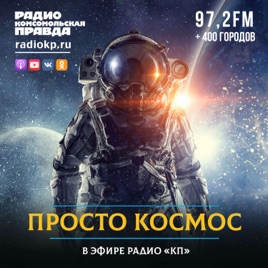
5
1
151
Просто космос
Радио «Комсомольская правда»
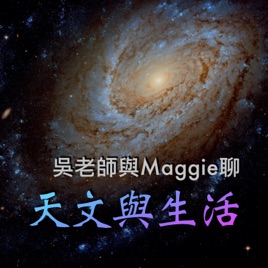
5
1
196
吳老師與Maggie聊天文與生活
Maggie UFOradio
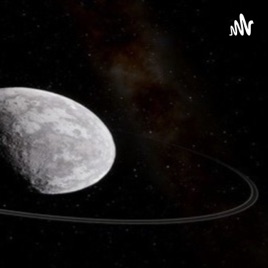
0
0
8
Ur Astronomy Radio
Miguel A. Mena
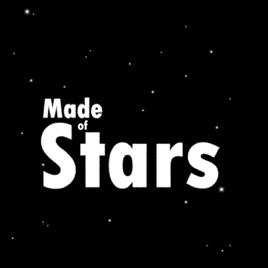
5
4
164
Made of Stars
Wes Carroll
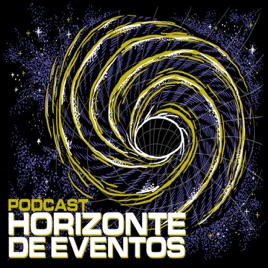
5
5
68
Horizonte de Eventos
Sérgio Sacani Sancevero
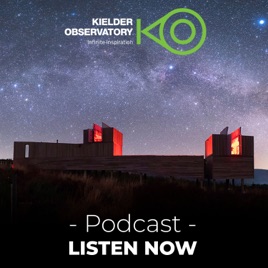
0
0
38
Kielder Observatory Podcast
Kielder Observatory Astronomical Society
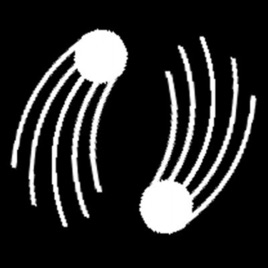
0
0
179
SkyCaramba
SkyCaramba
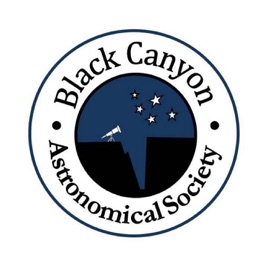
0
0
19
Western Slope Skies
Unknown
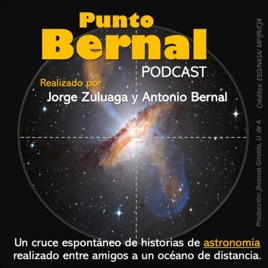
0
0
91
Punto Bernal
Punto Bernal
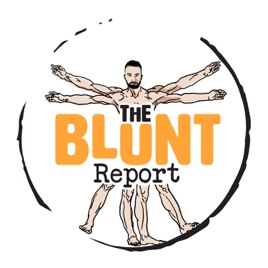
5
9
51
The Blunt Report
The Blunt Report



